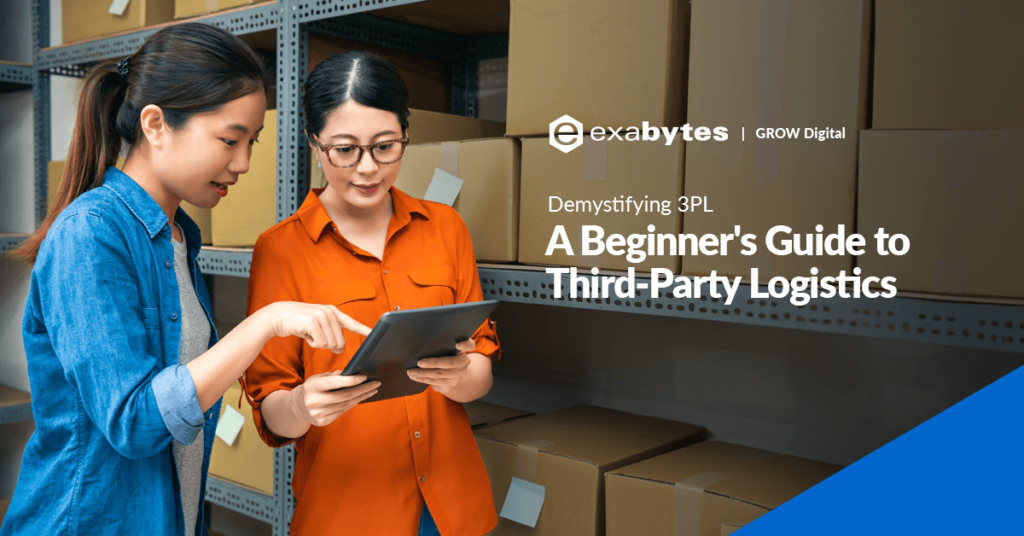[ad_1]

For businesses seeking to enhance their operational efficiency, grasping the essence of Third-Party Logistics (3PL) is vital. This article delves into 3PL, discussing its significance, benefits, drawbacks, and aspects concerning 3PL entities.
Aimed at both new entrepreneurs and seasoned business professionals, the content promises a comprehensive insight into 3PL, equipping readers to navigate their business endeavors more effectively.
Let’s dive into the exploration of 3PL and its impact on modern supply chains.
What is 3PL (third-party logistics)?
3PL, short for third-party logistics, encompasses a broad range of supply chain services for e-commerce businesses, including receiving goods, managing warehouse inventory, and fulfilling orders. These providers, also known as fulfillment companies, deliver key operations such as storage, inventory management, and the logistics of packing and shipping.
Beyond these fundamental services, many 3PL firms also handle additional tasks like freight transport, kitting, and managing returns, catering to specific needs such as cold storage or hazardous materials handling.
Furthermore, they often support businesses with analytics and demand forecasting to enhance supply chain efficiency. 3PL is widely utilized, with a significant portion of Fortune 500 companies relying on these services for their logistics needs.
The Process of Third-Party Logistics
The entire 3PL process is intricate and encompasses various components. In this section, we will explore the primary elements of 3PL and examine how they contribute to the fulfillment process.
1. Integration with ECommerce Platforms
Seamless integration with ECommerce platforms is vital for 3PL. As online retail grows, effective 3PL providers ensure their systems synchronize seamlessly with different ECommerce platforms. This integration streamlines order processing and inventory management while offering real-time visibility into order status and inventory levels, enhancing the customer experience.
2. FTL And LTL Freight Shipping
Efficient management of Full Truckload (FTL) and Less Than Truckload (LTL) shipping is fundamental to 3PL. FTL involves shipping goods belonging to a single company, while LTL allows merchandise from multiple companies to be shipped together. These shipping models can save costs, especially for frequent large or wholesale orders.
3. Inventory Management
Once goods are in warehouses, effective management is essential. 3PL companies excel in inventory management, employing advanced technologies to track stock in real time, preventing stockouts or overstock situations, and improving order accuracy. Outsourcing to specialized providers helps businesses achieve optimal stock levels, reduce carrying costs, and ensure product availability.
4. Picking, Packing, And Shipping
Picking, packing, and shipping are core to order fulfillment. Warehouse staff pick items from shelves upon receiving orders, pack them securely to prevent damage during shipping, and ensure prompt collection by carriers.
5. Same-Day Shipping
Same-day shipping expedites fulfillment by shipping orders on the day they are placed, enhancing customer satisfaction. Generally reducing delivery times by a day or two, same-day shipping requires a cutoff time for order processing.
6. Reverse Logistics
Reverse logistics involves managing product returns and the flow of goods back to manufacturers or retailers. 3PL warehouses handle returned merchandise, examining them for damages and determining their suitability for restocking or disposal. Offloading these tasks to 3PL companies allows business owners to focus on core operations and enhance efficiency
Advantages of Third-Party Logistics
Third-Party Logistics (3PL) offers businesses diverse benefits, providing strategic advantages across various aspects of their supply chain and operations. Let’s delve into them below:
- Cost Savings: Utilizing Third-Party Logistics (3PL) reduces overhead expenses, resulting in significant cost efficiencies for businesses.
- Diverse Service Options: Numerous 3PL companies offer varying levels of services, granting business owners the flexibility to choose services that align with their needs.
- Enhanced Supply Chain Stability: Leveraging the expertise and resources of logistics partners contributes to a more stable supply chain, enabling businesses to navigate market fluctuations and maintain consistency in the flow of goods.
- Faster Order Processing & Delivery: Selecting a third-party logistics provider with strategically located warehouse facilities facilitates swift order fulfillment and delivery, ensuring prompt service for customers.
Drawbacks of Third-Party Logistics
Despite the many advantages promised by ecommerce 3PL, certain aspects may pose limitations to its feasibility.
- High Initial Investment: A significant drawback of 3PL is the upfront investment required. Engaging external logistics providers often entails various expenses such as transportation, warehousing, and pick-and-pack costs, which can strain smaller businesses or those with limited capital.
- Reduced Workflow Control: Another consideration is the potential loss of control over workflow. Delegating logistics functions to a third party means relinquishing some direct oversight. This can make it challenging for businesses to monitor processes in real-time and make immediate adjustments, affecting responsiveness and the ability to customize logistics solutions.
Different Types of 3PL Companies
3PL companies are diverse and offer specialized services tailored to different aspects of logistics. Here’s a breakdown of the various types:
Comprehensive Provider: Full-service 3PLs offer complete logistics solutions, overseeing the entire supply chain from transportation to distribution and fulfillment. This integrated approach streamlines operations and simplifies management for businesses.
Warehousing Specialists: These 3PLs focus on storage and distribution, providing secure and efficient warehousing solutions. They excel in inventory management and order fulfillment, ensuring timely delivery of goods.
Transportation Experts: Transportation-centric 3PLs specialize in optimizing shipping routes and carrier selection to ensure prompt delivery while minimizing costs. Their expertise in logistics networks enhances efficiency for businesses.
Financial and Information Management: These 3PLs handle financial transactions and information flow within the supply chain. From auditing freight expenses to processing invoices, they ensure accuracy and efficiency in logistics-related financial processes.
How to Select a 3PL Partner?
When choosing a 3PL provider to manage your growing logistics needs, consider these key factors for a successful partnership:
Understand Your Requirements: Begin by identifying your current and future logistics needs, including order volume and distribution channels, to find a 3PL provider that aligns with your goals.
Assess Technological Capabilities: Evaluate potential partners based on their use of advanced technology for tracking, inventory management, and integration with your existing systems.
Ensure Scalability: Choose a 3PL partner capable of scaling operations as your business grows, ensuring they can accommodate increased demand and evolving requirements.
Prioritize Customer Service: Look for a 3PL provider known for responsive and accessible customer service, which enhances satisfaction and streamlines communication throughout the logistics process.
Conclusion
In summary, integrating Third-Party Logistics (3PL) into your business strategy offers significant advantages for optimizing supply chain operations. By understanding the concept of 3PL, weighing its pros and cons, exploring different types of 3PL companies, and following tips for selecting the right partner, you can effectively harness professional 3PL services to enhance logistics efficiency and advance your ecommerce business operations.
Explore Opportunities on Alibaba.com
Logistics can pose challenges for small to medium-sized businesses. Platforms like Alibaba.com are collaborating with 3PL companies to alleviate shipping costs and management burdens for business owners.
With over 1,700 freight providers and 100 logistics companies partnering with Alibaba.com, business owners can access a vast network of 3PL services, streamlining their operations and focusing on growth. Simply sign up for an Alibaba.com account to expand your global reach and benefit from efficient logistics solutions.
Become Alibaba.com’s Gold Supplier with Exabytes
Related articles:
Your Guide to Alibaba.com Logistics Marketplace Door-To-Door Service
Best Practices for E-commerce Shipping Solutions During the Festive Season
[ad_2]
Article link





